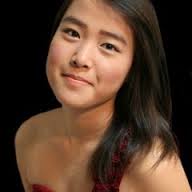|
Symphony
FROM THE NEW WORLD TO THE OLD WORLD
by Peter Lert
Saturday, June 14, 2025
Chamber
MC2 DUO RECITAL CLOSES 222'S SEASON
by Terry McNeill
Saturday, June 14, 2025
Choral and Vocal
CANTIAMO SONOMA'S LUSCIOUS A CAPELLA SINGING IN SEASON ENDING CONCERT
by Pamela Hicks Gailey
Sunday, June 8, 2025
Symphony
SRS SEASON ENDS WITH RESOUNDING TA-TA-TA-BANG
by Terry McNeill
Sunday, June 1, 2025
Symphony
YOUTHFUL VIRTUOSITY ON DISPLAY AT USO'S MAY CONCERTS
by Peter Lert
Saturday, May 17, 2025
Symphony
MYSTICAL PLANETS AND LIVELY GERSHWIN ORTIZ AT FINAL SRS CONCERT
by Peter Lert
Sunday, May 4, 2025
Symphony
VSO'S CONCERT MUSIC OF TIME, MUSIC OF PLACE
by Peter Lert
Sunday, April 27, 2025
VOCAL ELEGANCE AND FIRE AT THE 222'S RECITAL APRIL 26
by Pamela Hicks Gailey
Saturday, April 26, 2025
CANTIAMO SONOMA SINGS AN INSPIRED GOOD FRIDAY MOZART REQUIEM CONCERT
by Pamela Hicks Gailey
Friday, April 18, 2025
DRAMATIC SHOSTAKOVICH SYMPHONY CLOSES PHILHARMONIC'S 25TH SEASON
by Terry McNeill
Sunday, April 13, 2025
|
 |
 Pianist Alice Zhu |
POLISH, WITH POLISH
by Terry McNeill
Saturday, November 16, 2013
As with many orchestras, the American Philharmonic Sonoma County (APSC) produces programs with a theme, and the Nov. 16 concert in the Santa Rosa High School Performing Arts Auditorium had the title "Polish." But only Chopin's E Minor Piano Concerto was the genuine article, though the companion Third Tchaikovsky Symphony, Op. 29 ("Polish"), was the star of the show.
Alice Zhu was the soloist in the Concerto, the engagement related to her being awarded the Orchestra's young artist prize in 2012. The work, from 1829, is lyrical throughout, even more melodic than the better-known and architecturally tighter F Minor Concerto. There was no orchestraal cut in the long introduction. Conductor Norman Gamboa elicited a muscular reading, with Ms. Zhu matching their forceful presentation--a needed approach, as the hall's resident 72-year old piano has slipped below a professional level. The days of Perahia and Laredo performances on that piano are long gone.
The pianist had a fine grasp of Chopin's evanescent rubato and the vocal nature of the opening Allegro, but the instrument's monochromatic sound made the cadenza seem harsh. Conditions improved in the lyrical Romanza, with its melting opening passage for the violins, and Ms. Zhu deftly shaped the long line and subtle phrases. The duos between soloist and horns were charming, but the movement's last chords were abrupt rather than shimmering.
Mr. Gamboa chose a judicious tempo for the finale, the Concerto's most technically challenging in ensemble, and Ms. Zhu's adept scale playing could always be heard over the frequently loud orchestra.
After intermission and the traditional raffle prize announcements, the APSC played the 47-minute Tchaikovsky Symphony with affection and sporadic brilliance. The five-movement work from 1875 possesses much of the thematic development and powerful dramatic effects heard in the composer's more popular last three symphonies. Throughout the Symphony, the horns had a workout, especially in the mournful Andante Elegioco, and the playing of bassoonist Miranda Kincaid, oboist Chris Krive and flutists Debra Scheuerman and Emily Reynolds was outstanding. The APSC had developed a first-cabin wind section, deep-toned and precise.
Throughout the Symphony, the low strings tended to overpower the violin sound, especially in sonorous passages, but even in Tchaikovsky's extended use of pizzicato. This probably was a result of the auditorium's acoustics rather than an underpowered violin section, but the effect of robust cellos and the three bass viols was pungent. Mr. Gamboa led an exuberant Allegro con fuoco finale, underlining each fugal entry, and letting the brass sections generate a prodigious sound. Trombonists Jeff Barnard and Bill Welsh and trumpeters Karl Johnston and David Lindgren were everywhere sonorous and secure, as was solo timpanist Joseph Lang.
The APSC has developed a substantial command of weighty works under Mr. Gamboa's flexible baton, a likely indication that Tchaikovsky's great final symphonies will be on future programs, along with those of his peers.
|
